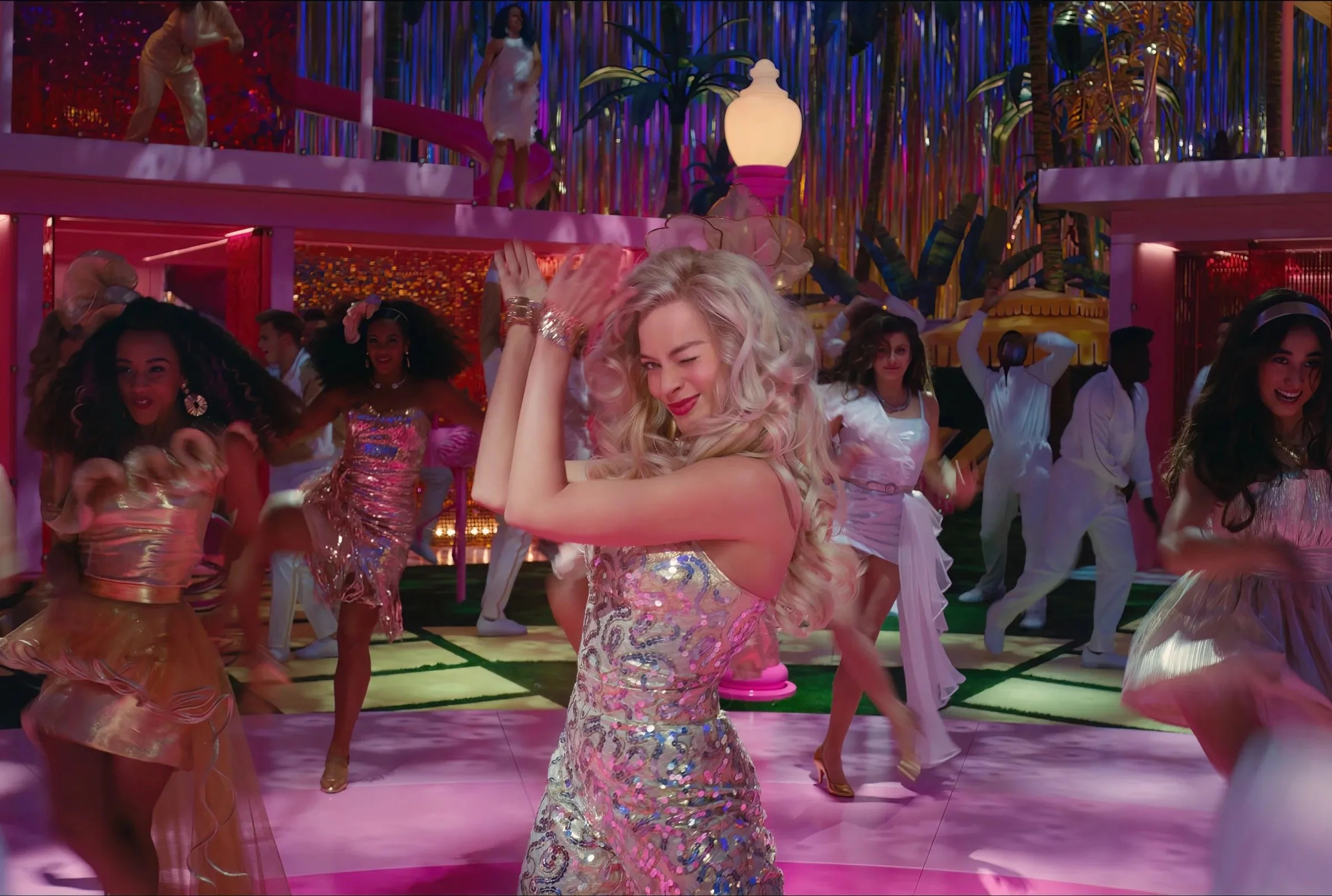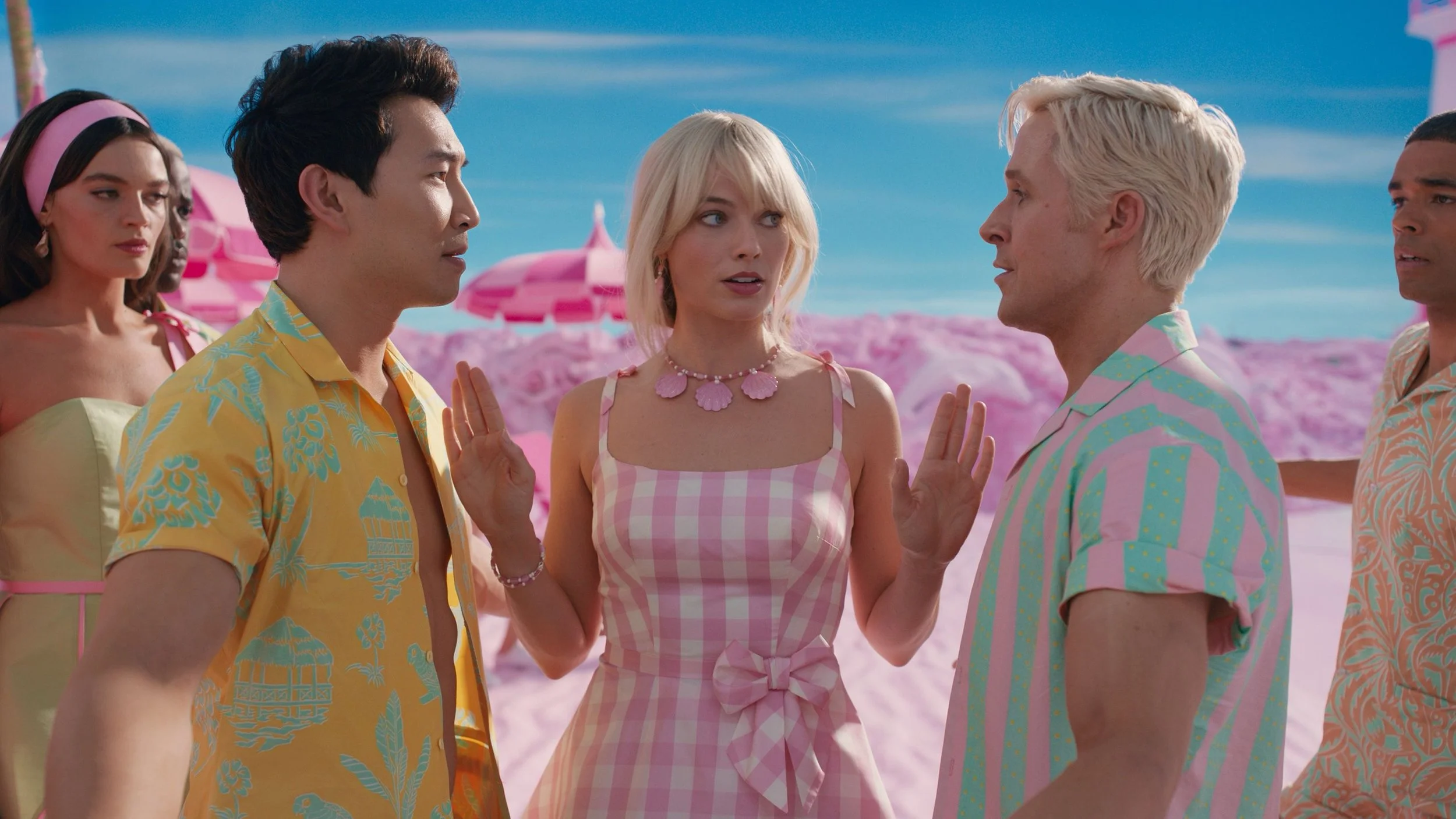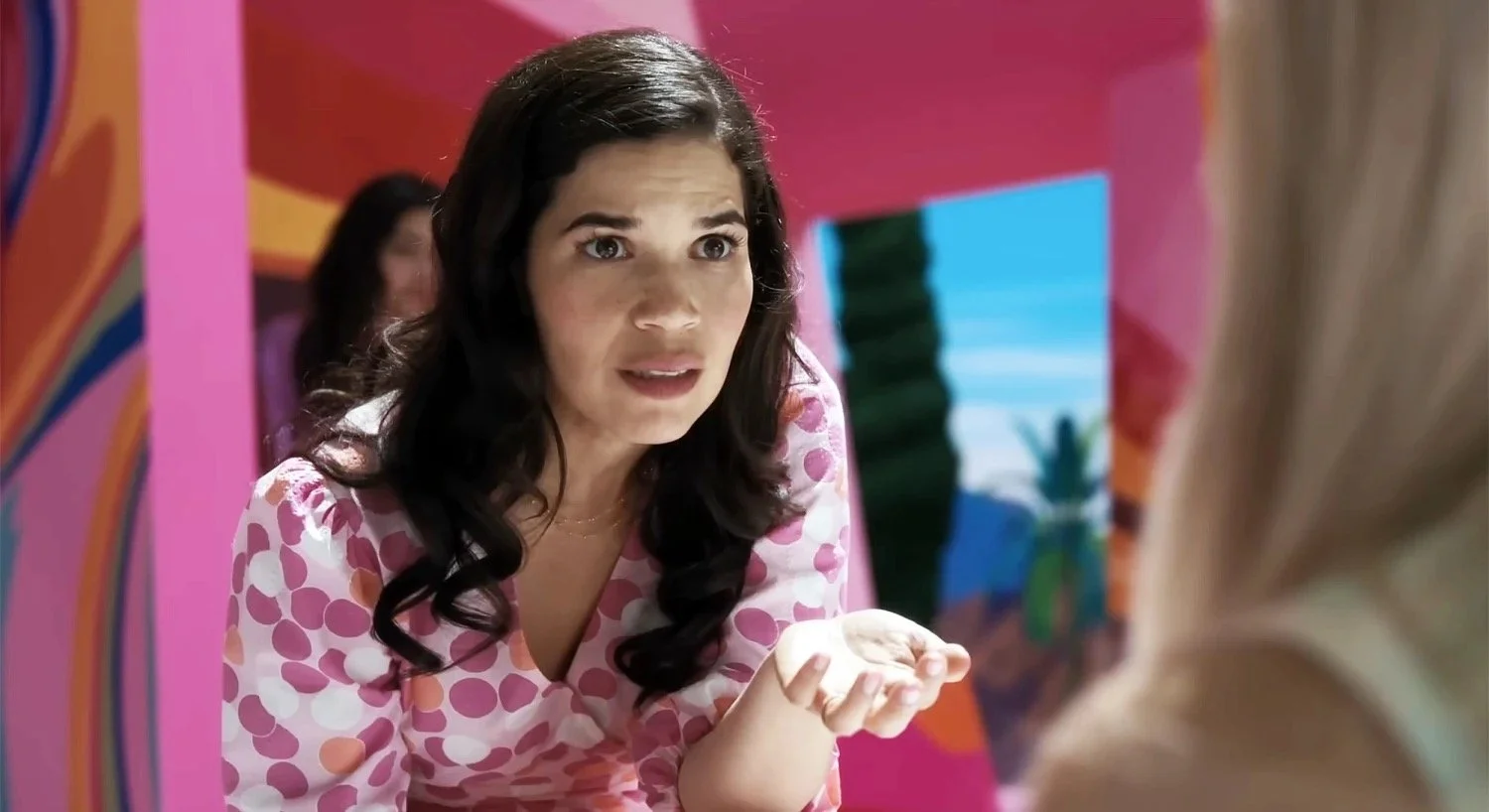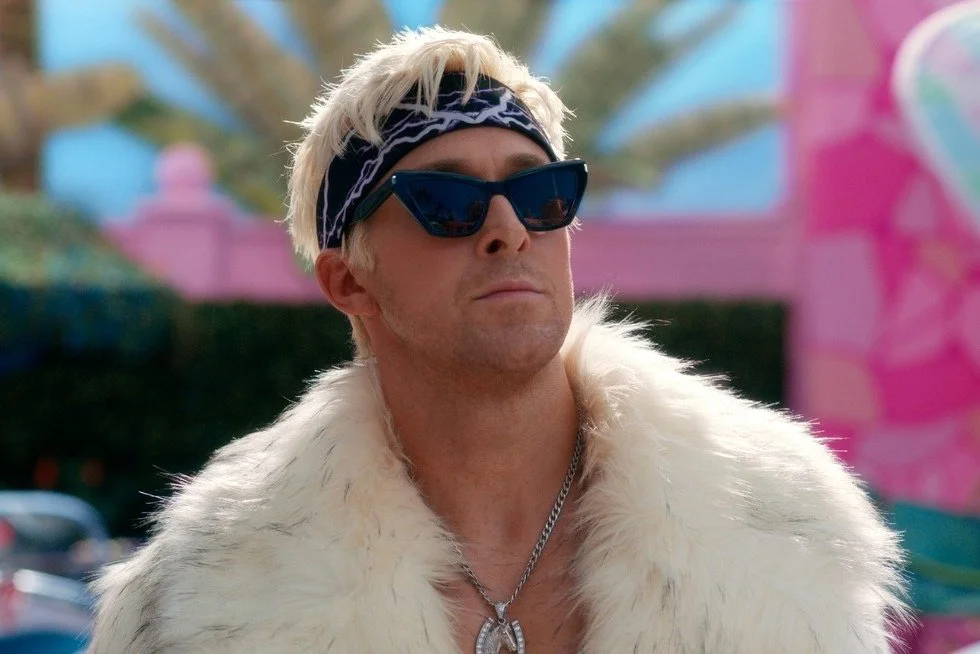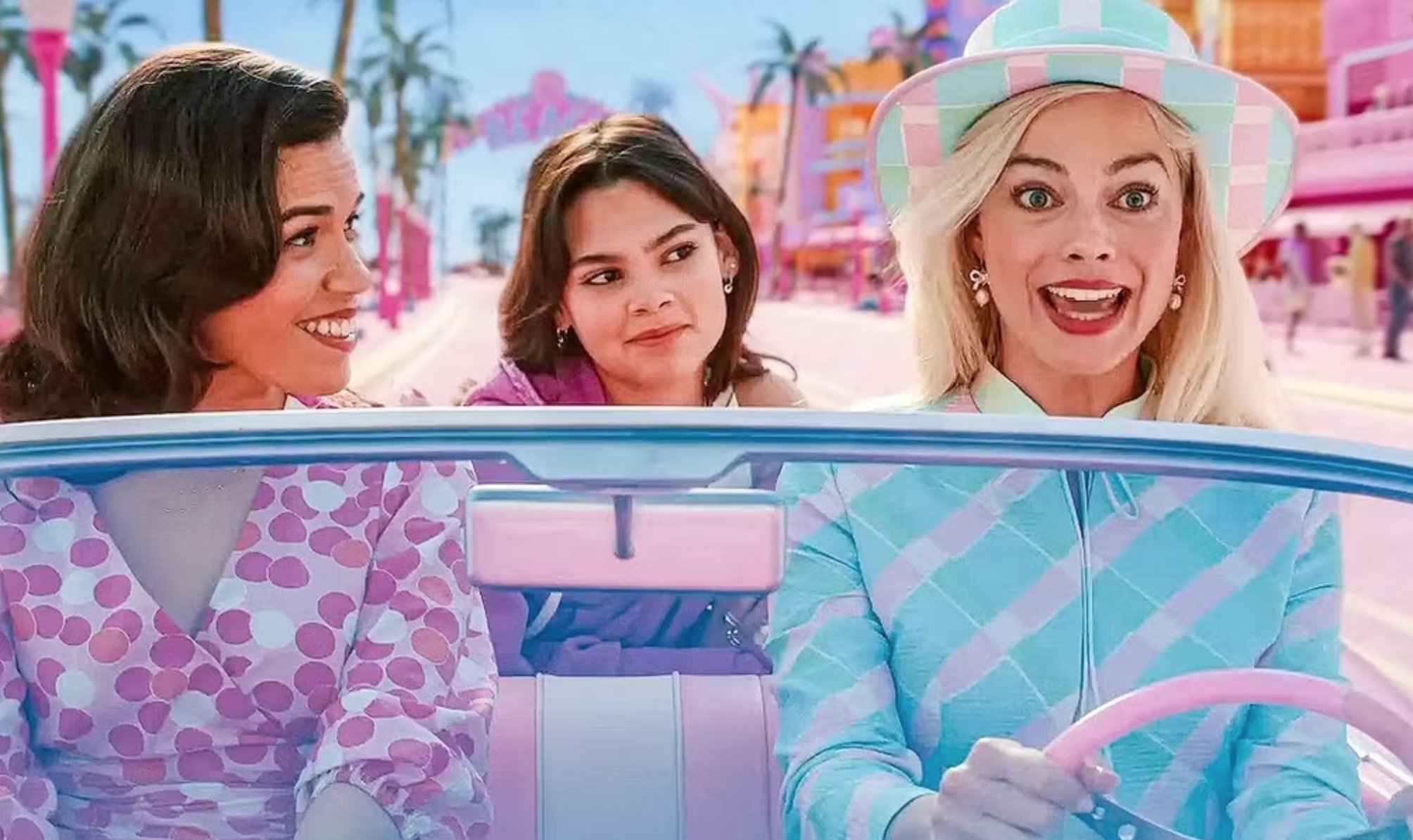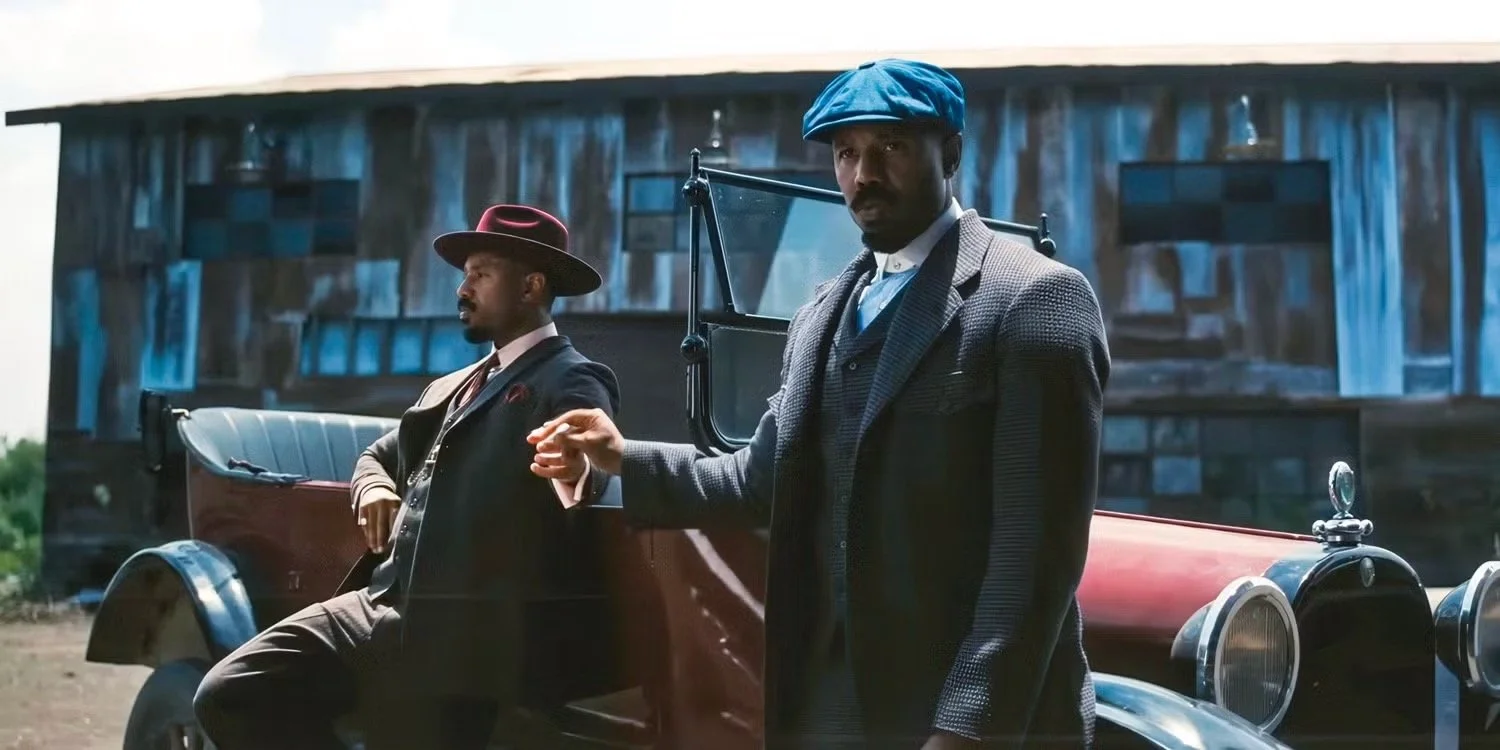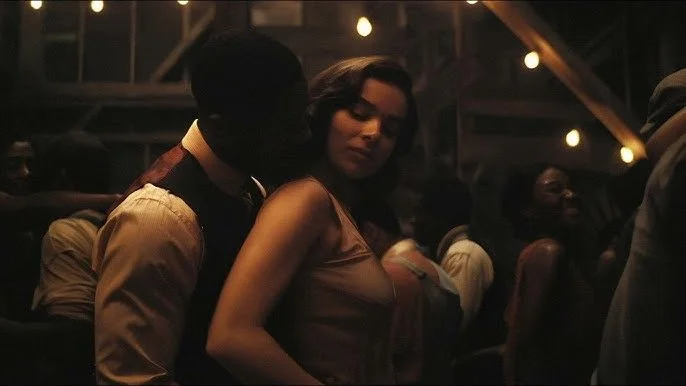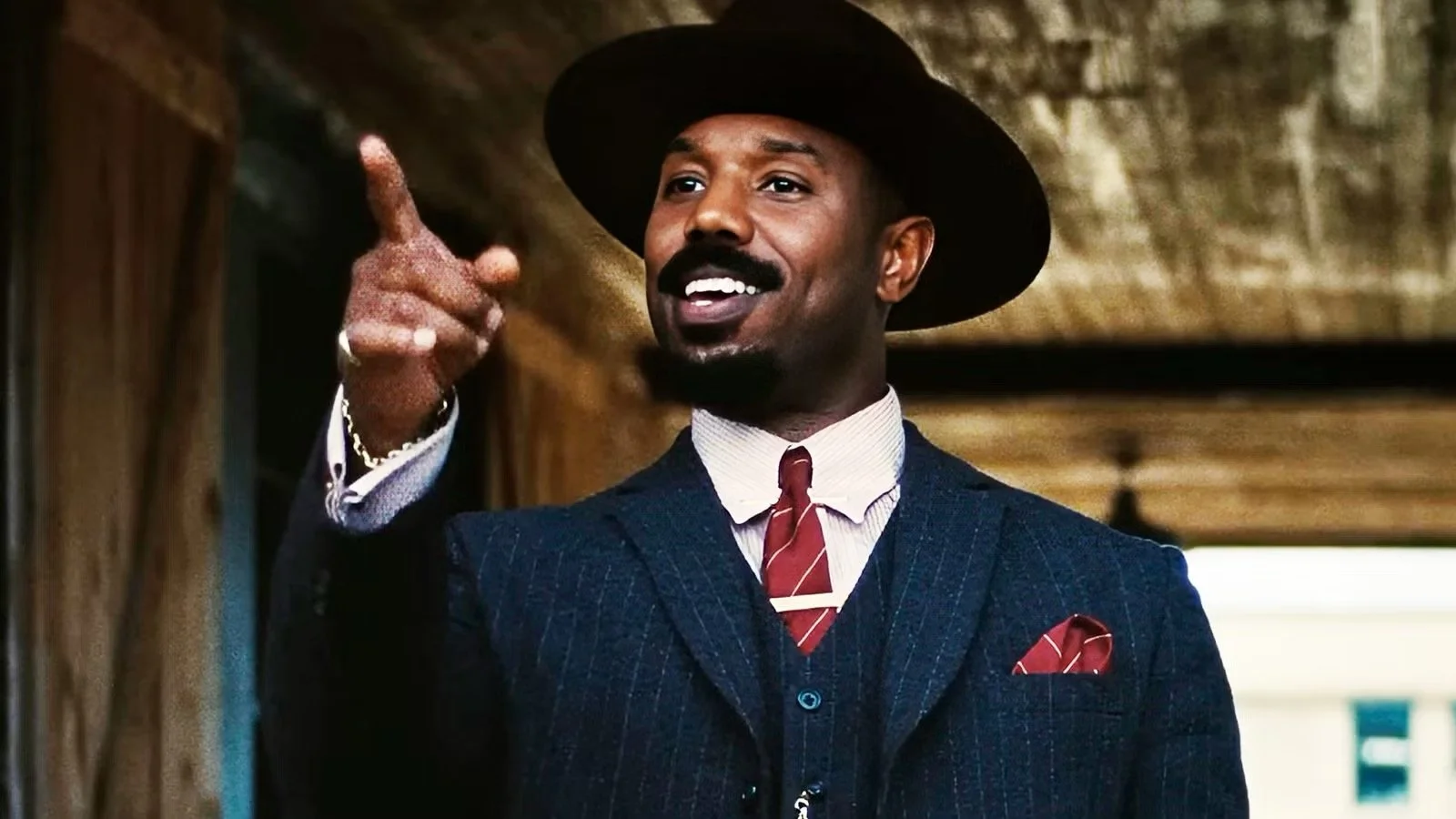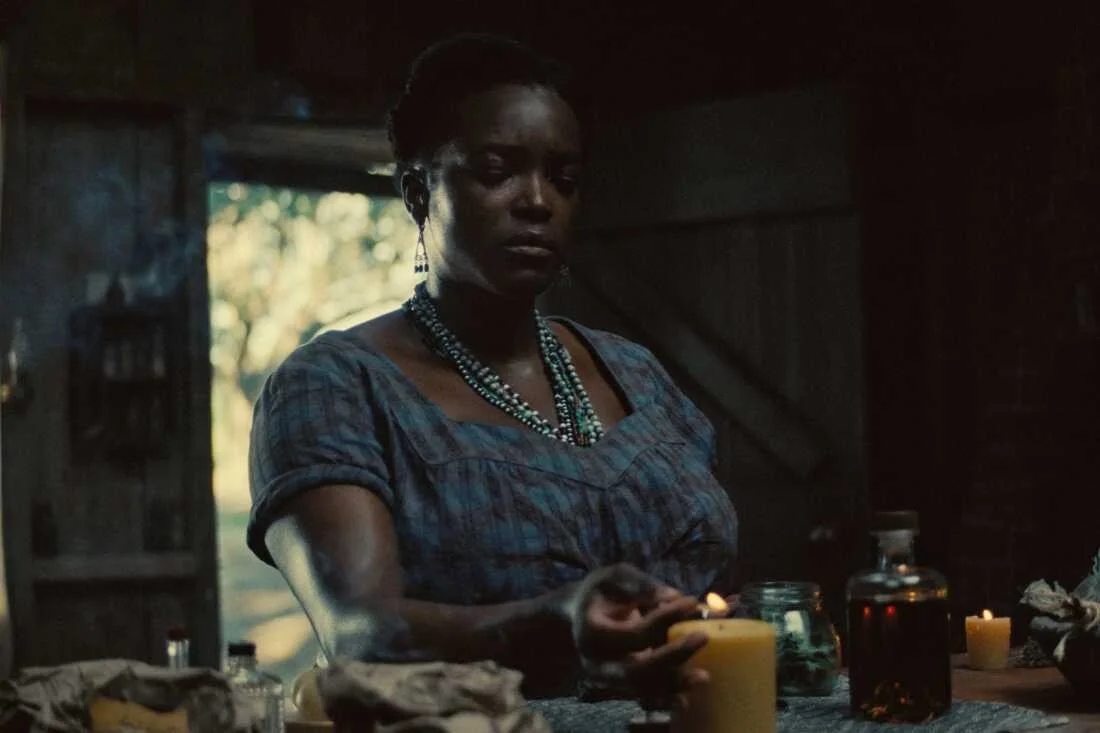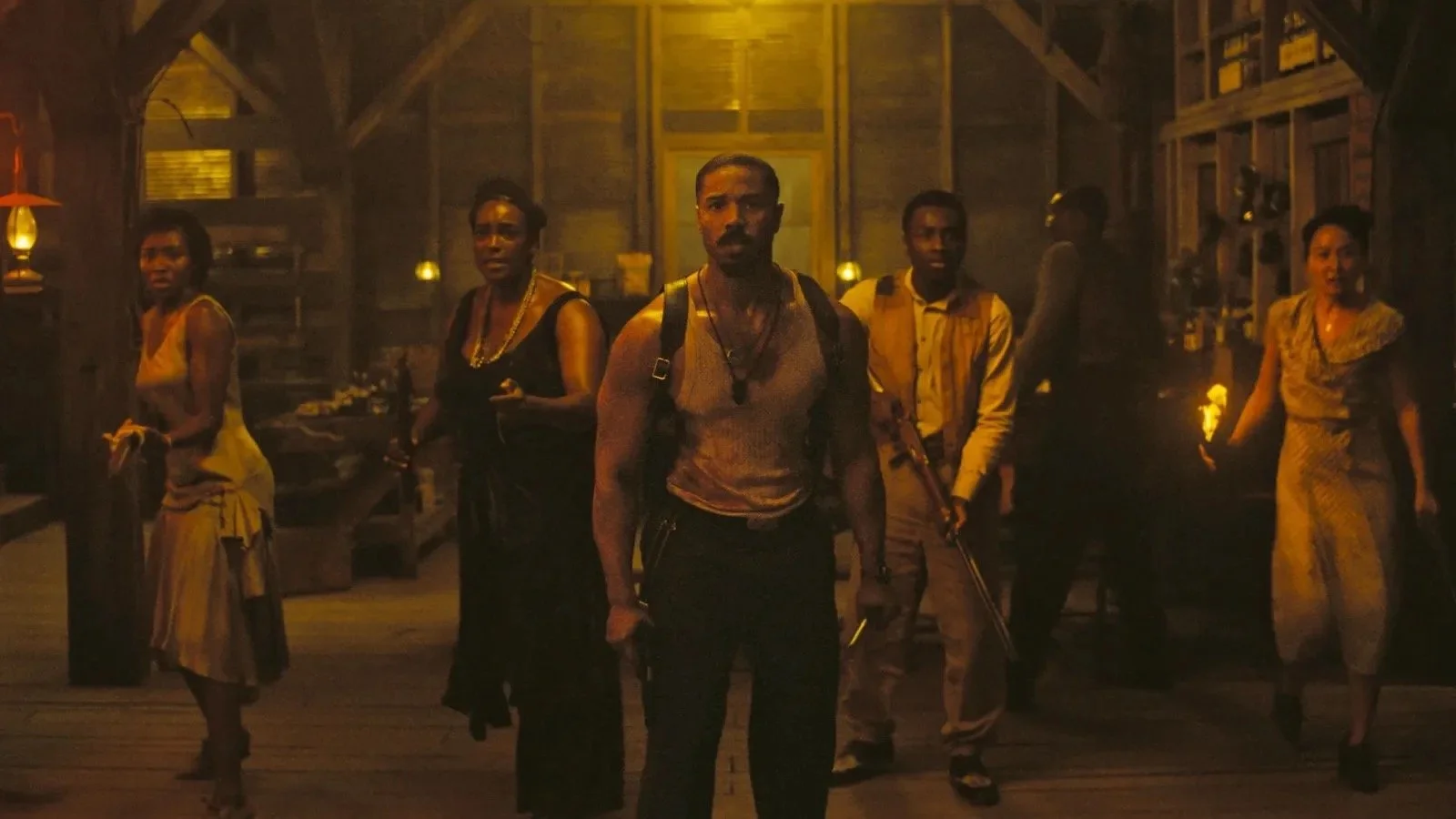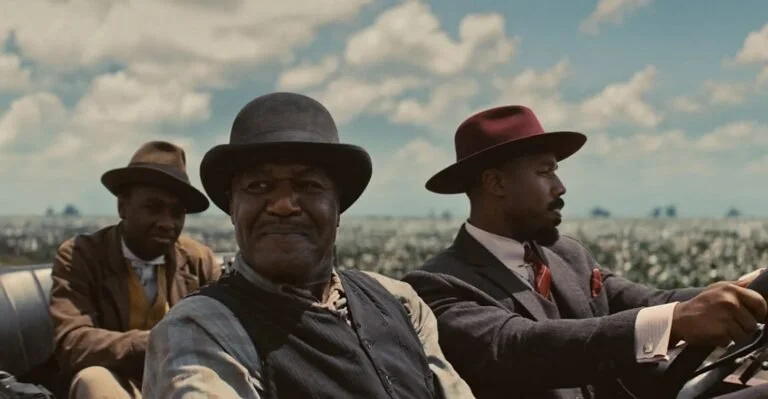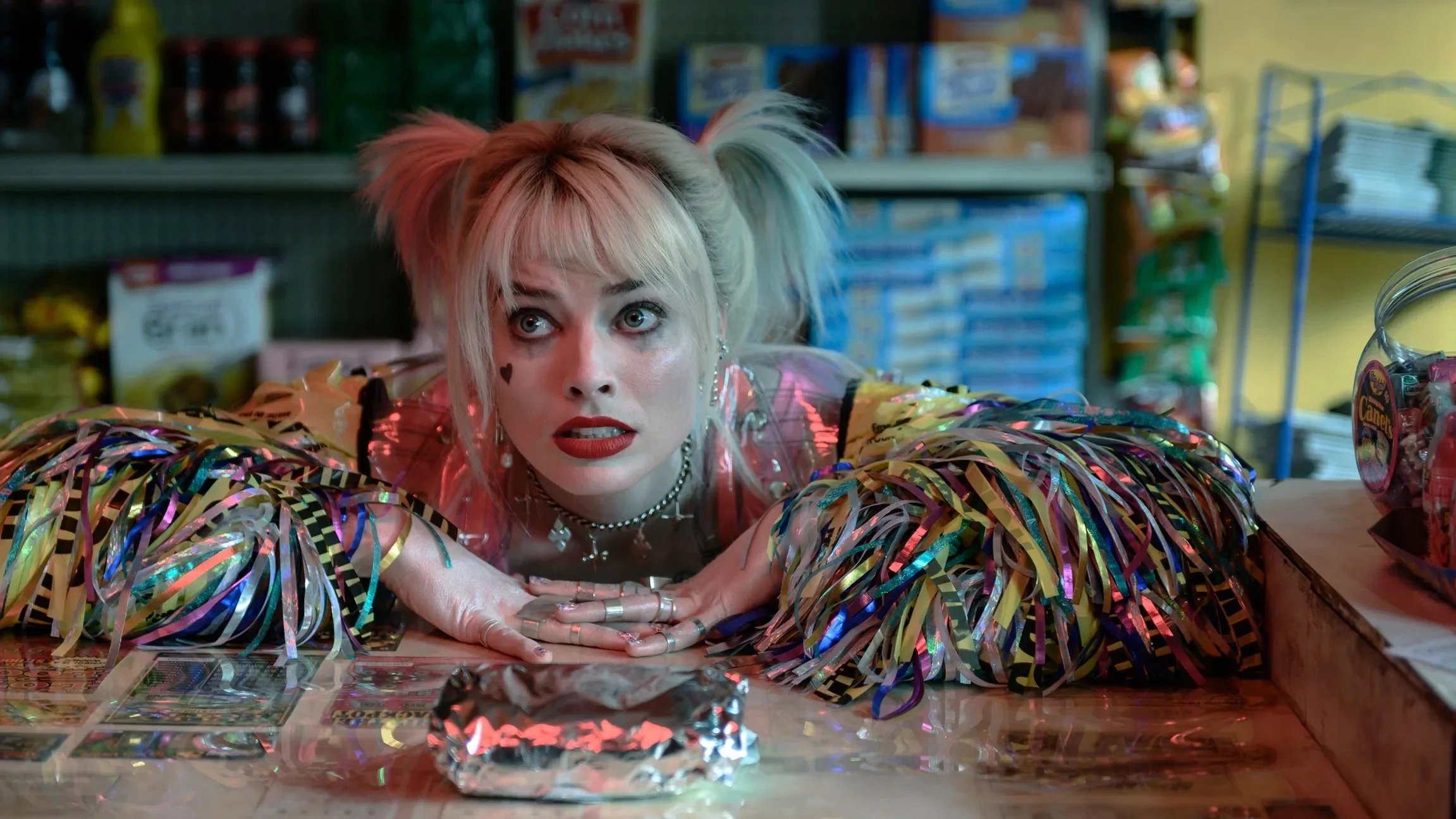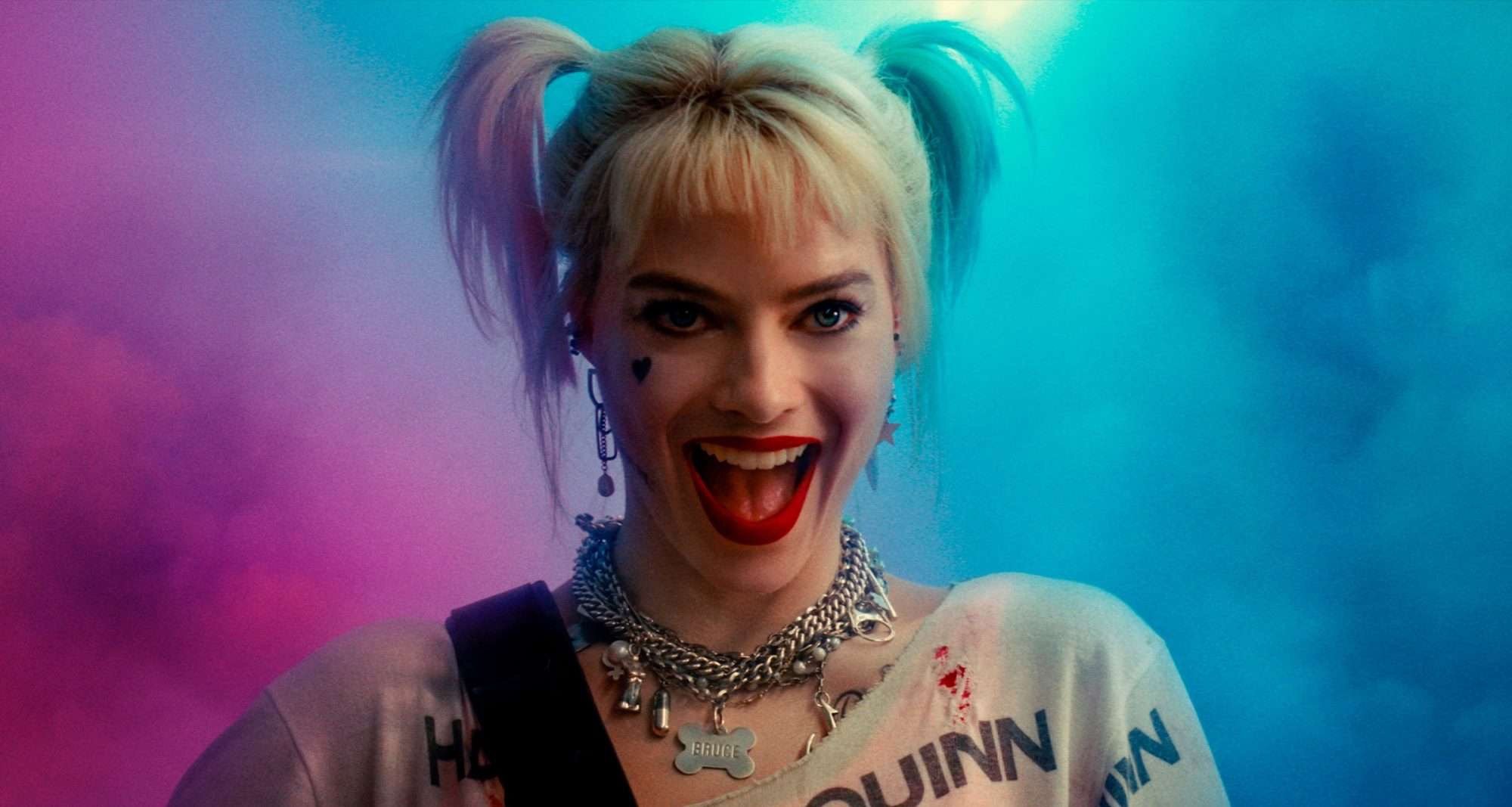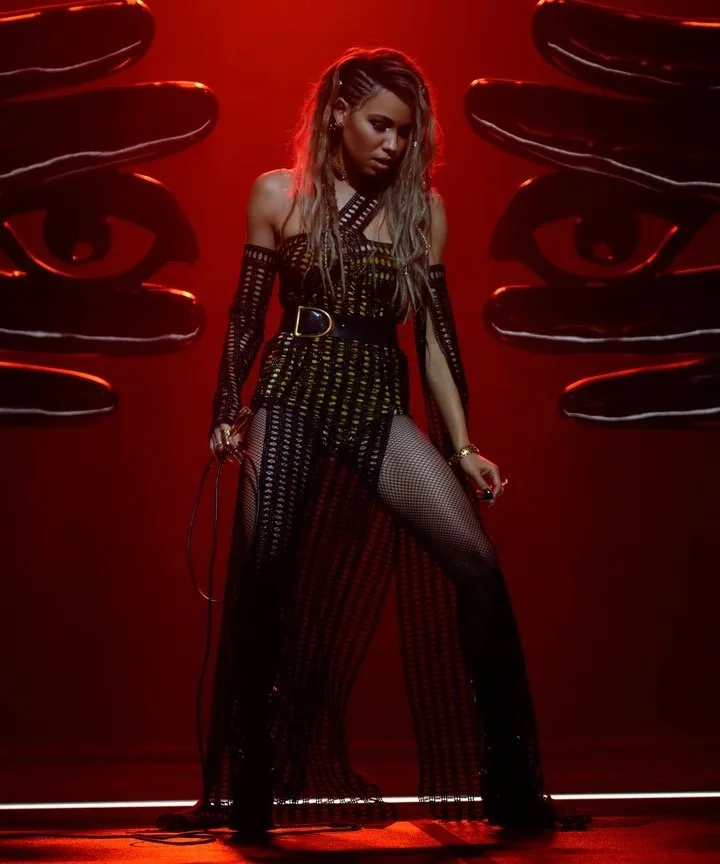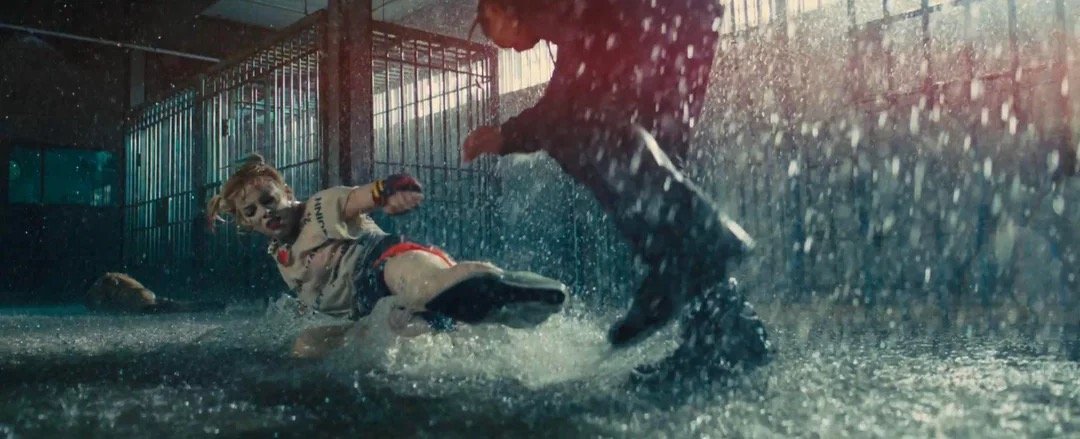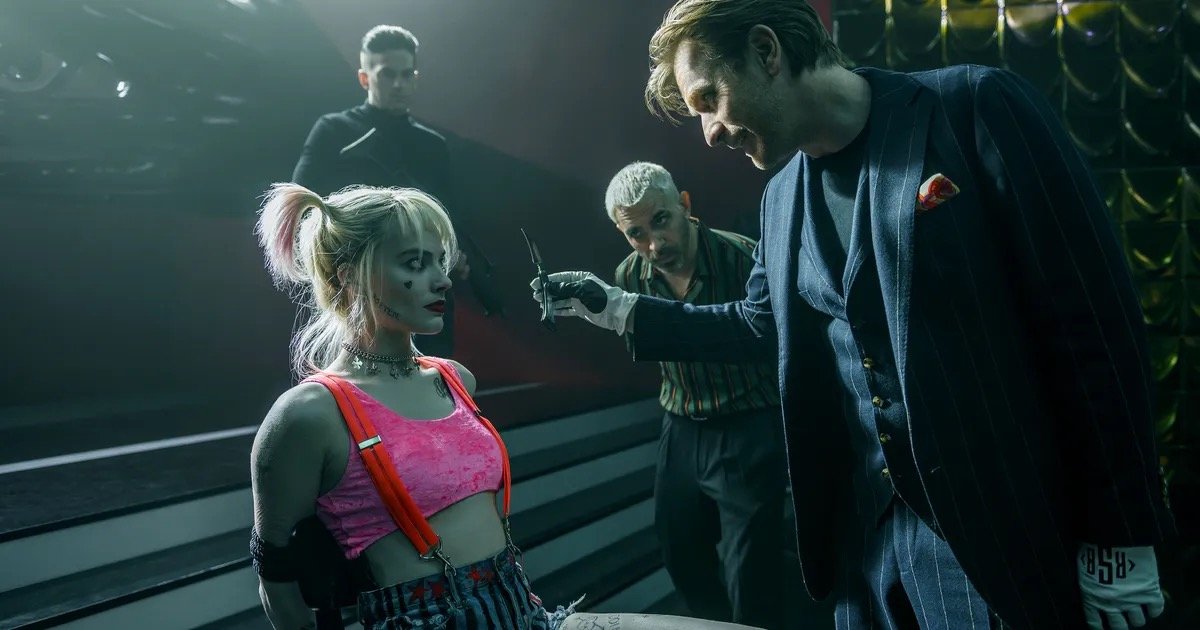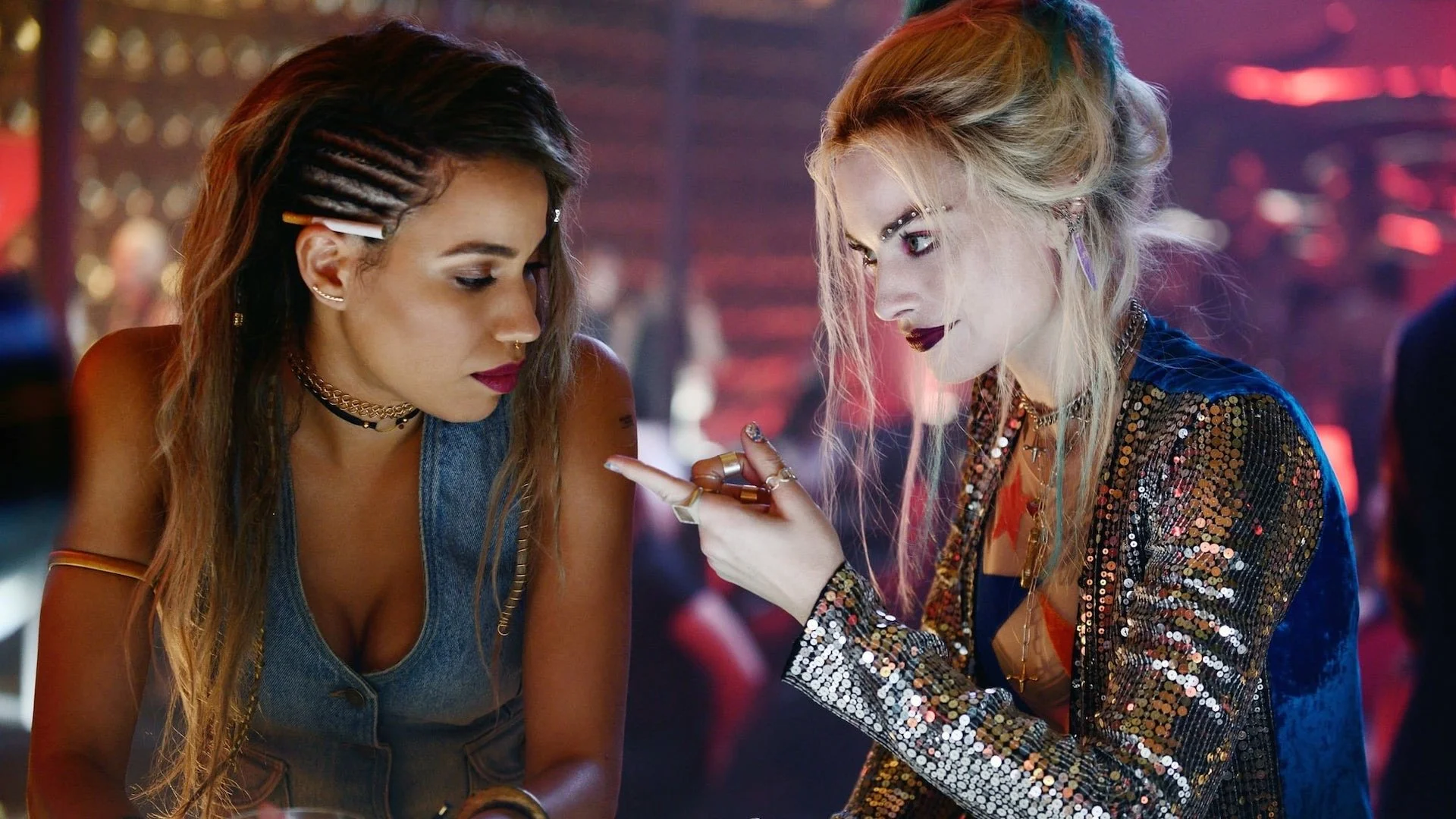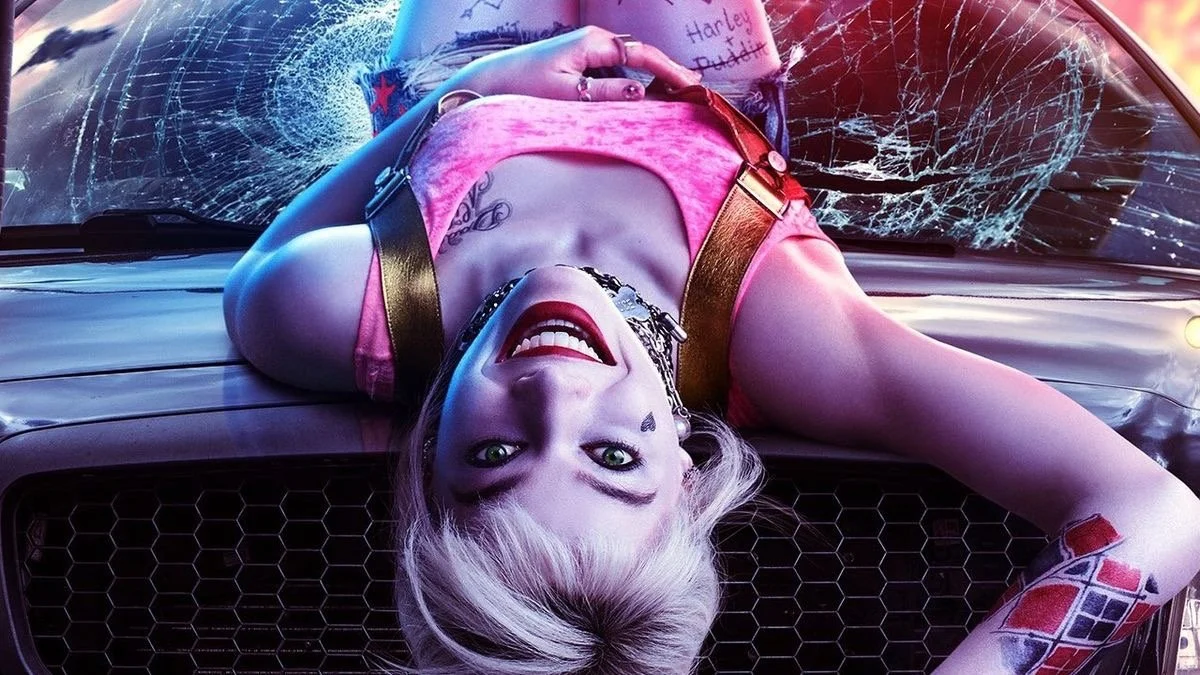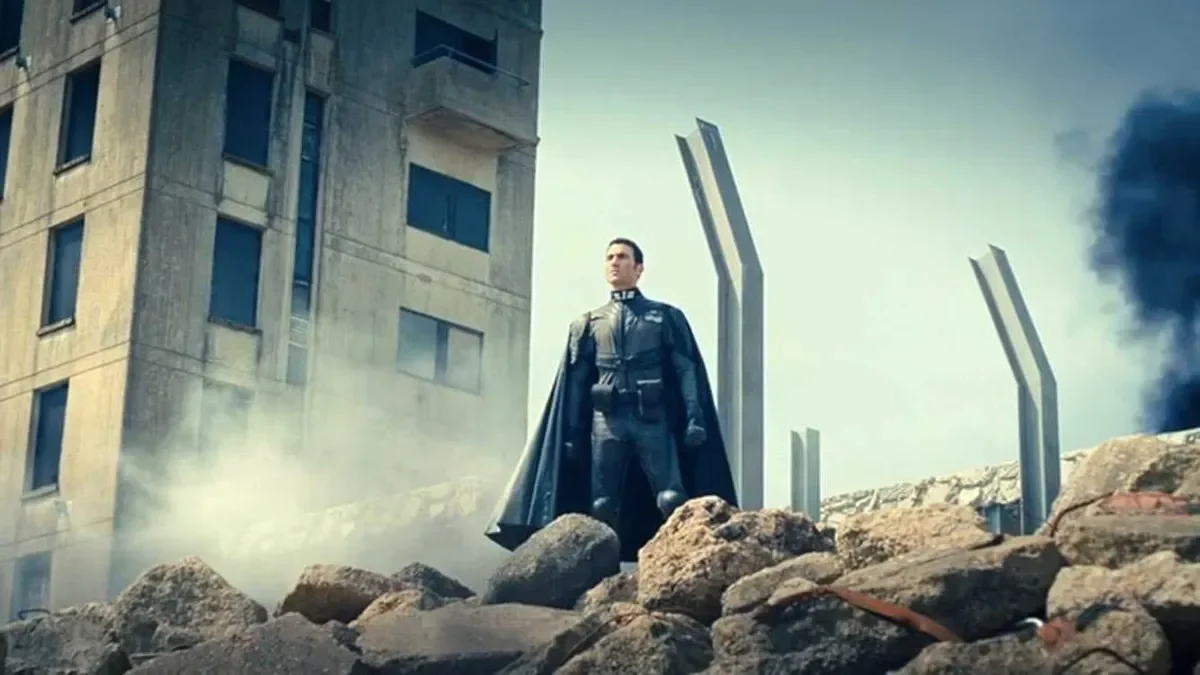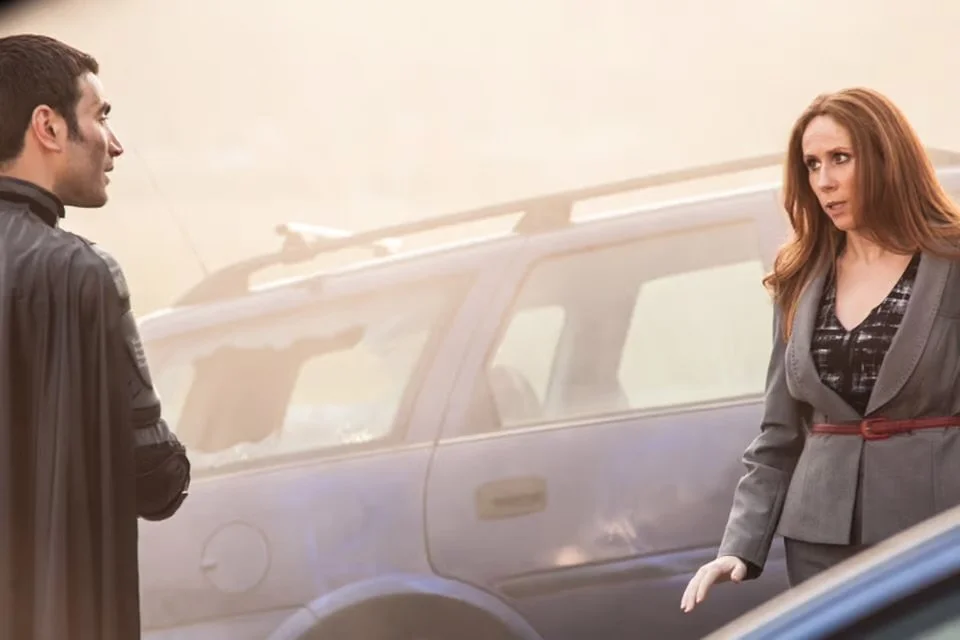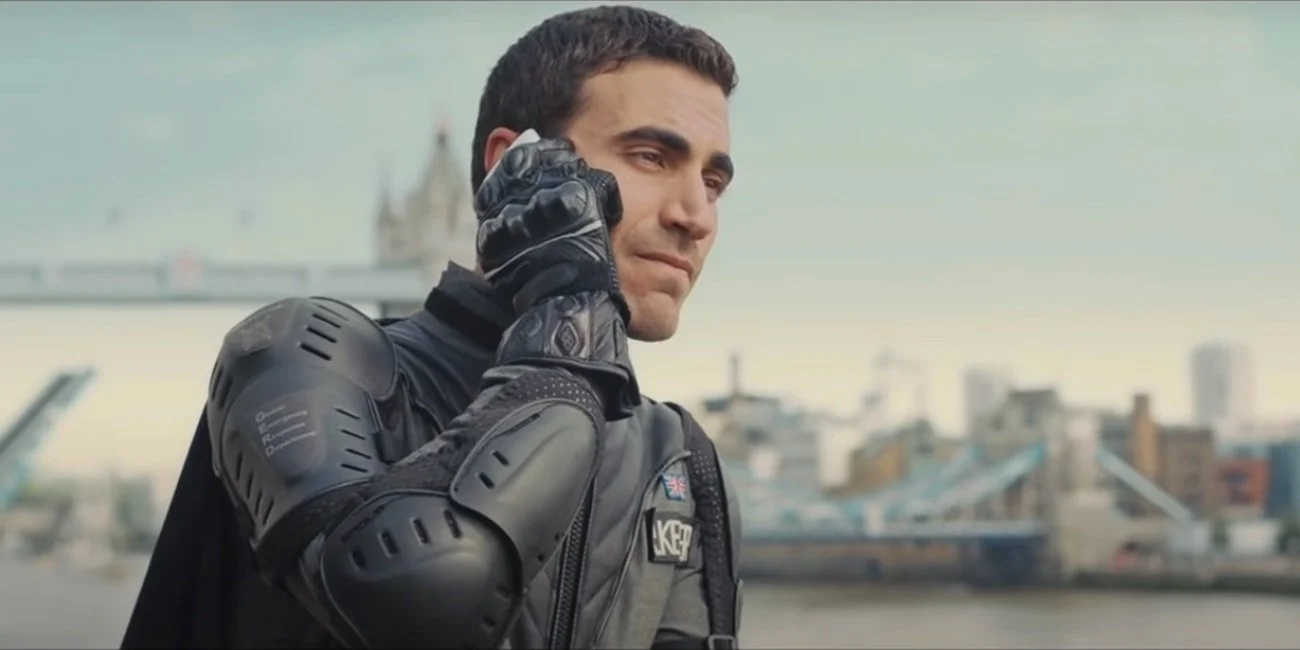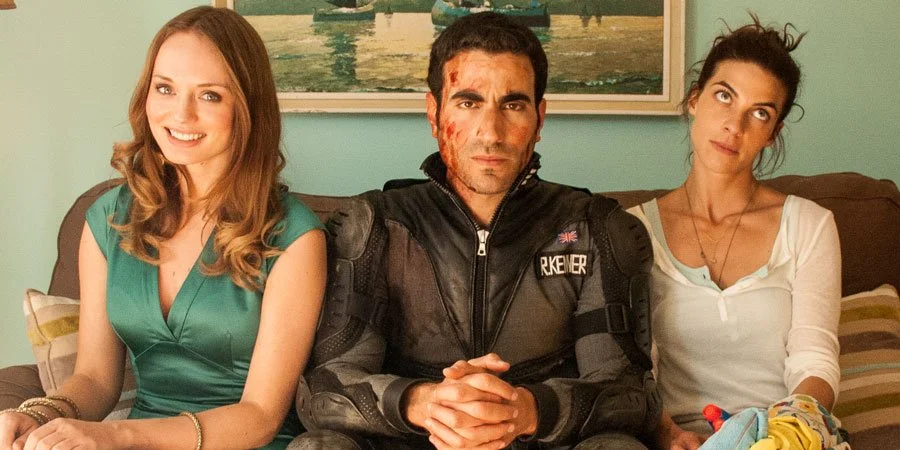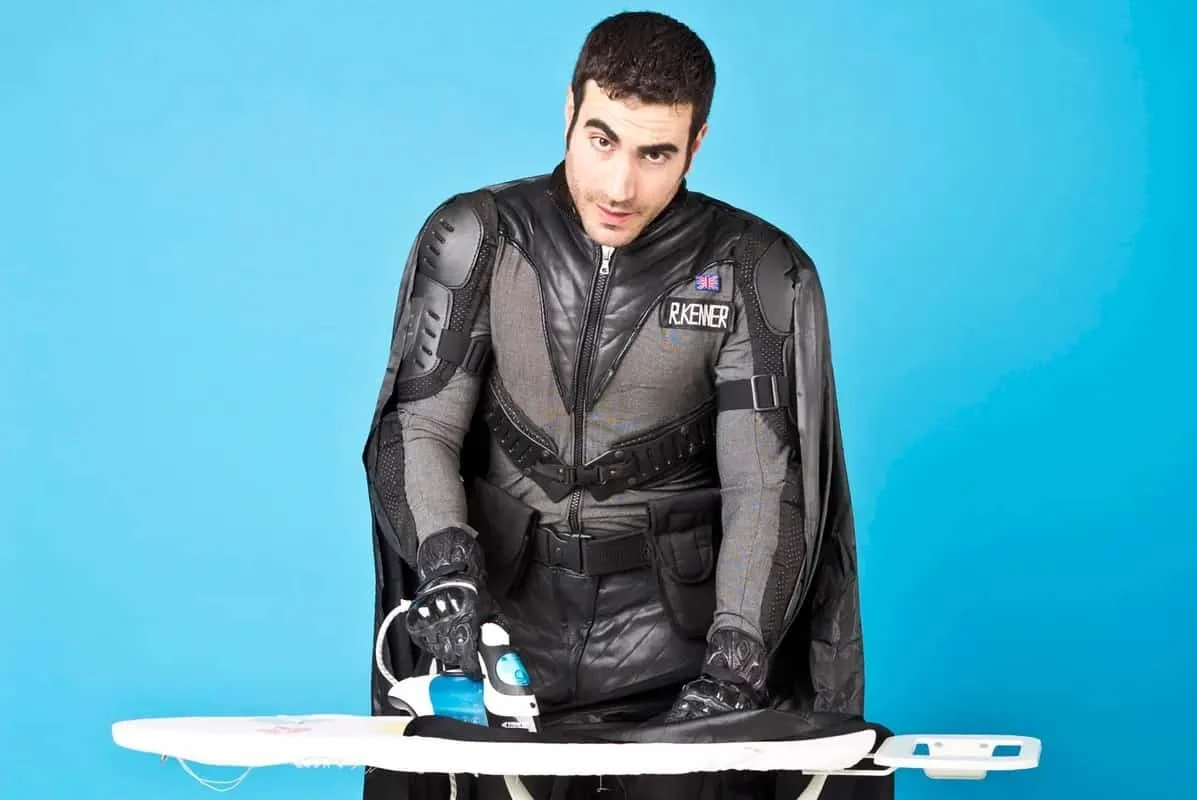It’s Women’s History Month and I had a little bit of a hard time coming up with something to bring you. It’s hard to encapsulate the cornucopia of the massive contributions of women to history in one month, let alone one post about one movie. I personally love women-led projects and never shy away from watching or covering them. Just recently, I covered Birds of Prey, which is written by, directed by, and starring women. Michelle Terry wrote and starred in The Cafe, which centers on three generations of women living in a small coastal English town and their Gilmore Girls-style struggles. And I’m still singing the praises of KPop Demon Hunters to anyone who will listen. So trying to think about one piece of media that can address womanhood, I struggled because of how big and complicated a topic that is and how unqualified I am to talk about it. Just like when I discussed Sinners, I do need to note that I’m not a woman, so I’m coming at this topic from the outside and while I always seek to understand, nothing I could say on this topic could ever be complete. So again, I want to urge you to listen to others as well, those who do have authority on this topic (you know, women). But I’m going to do the best I can. I’ve put on my favorite pink shirt, so let’s get into Barbie.
Barbie dolls are a part girls’ childhoods the way they were never a part of mine. I remember in every trip to a toy store, whenever I got to the aisle (sometimes two aisles) that was bathed in pink everything, I would just walk past. That was the girl aisle, there were no GI Joes or Hot Wheels cars in those aisles, not even any Legos, so they had nothing to do with me. But for many young girls, Barbie is formative. Just like for me, I always thought I had to be a tough guy held together with a decaying unseen rubber band (oh the pain of a GI Joe going from a heroic action figure one second to a pile of parts the next; actually kind of also like me sometimes), Barbie dolls help shape the way young girls see themselves. That’s just how people work, kids are sponges that absorb everything, every little message, whether intended or not, whether conscious or not, whether twisted or not, children pick up on everything and they internalize it and not always necessarily when they have the tools to process it healthily. That’s why children’s media is so important and so are their toys; the world you present to them is the one they’re going to look to see when they’re older. Is that world diverse, respectful, tolerant, empathetic, and kind? Or is that world something else? And what’s their place in it? Barbie aims to tackle a lot of that in this ambitious film and for most part, was very successful at it.
The vitals, if you weren’t caught in the Barbenheimer craze in 2023: written and directed by Greta Gerwig (Lady Bird, Little Women), starring Margot Robbie (Birds of Prey, Asteroid City) as Stereotypical Barbie, Ryan Gosling as Beach Ken (Drive, The Nice Guys), Kate McKinnon (Ghostbusters, Bombshell) as Weird Barbie, America Ferrera (Superstore, How to Train Your Dragon) as Gloria, Ariana Greenblatt (Love and Monsters, In the Heights) as Gloria’s daughter Sasha, Will Ferrell (A Very Jonas Christmas Movie) as the Mattel CEO, Michael Cera (Arrested Development, The Phoenician Scheme) as Allan, and a host of very famous and talented actors and actresses starring as various Kens and Barbies in Barbieland. It’s even narrated by Helen Mirren (Fast X, Fast and Furious Presents: Hobbs & Shaw). It’s rated PG-13 and has a runtime of 1 hour, 54 minutes. And when we open up on Barbieland, it’s a picture of a pink utopia, where the Barbies are in charge and have their every desire fulfilled without a second thought. The sight gags are on point here; the drinks have nothing in the cup, the shower cleans without water, and staircases are just ornamental; when going up or down things, the Barbies just float, as if being guided by an invisible hand because that how kids play with them. I remember making my GI Joes walk up stairs a few times, but mostly stairs were an impediment at going up a level or something for them to tumble down during a fist fight. It completely tracks. It’s all very reminiscent of The Lego Movie, where you have this secret world which follows the rules of toys, which means there aren’t that many when it comes to physics or water (there are a lot of plastic water sight gags, which I do appreciate).
All goes well for the Barbies, including Stereotypical Barbie (SB). They’re in charge. Barbie president, an all-Barbie Supreme Court, every position of power or significance is filled by a Barbie. They want for nothing and everything is taken care of. It’s even a fairly diverse setup they have going; when I was a kid, Barbie was a tall blonde white girl and a tall blonde white girl only. Or at least that was my perception of it. But in Barbieland, there are Barbies of all different races, national origins, body types, and there’s even, very quietly, a trans Barbie. And this is so great, I hope it’s reflective of the Barbie toys that are out there now, because kids, sponges, etc.; I said this part already. You get a little establishing montage full of small feminist mantras that are on-the-nose. But I’ve spoken before about subtlety in films and when you don’t want it due to the current state of media literacy and while it’s often the weakest part of the writing, it feels necessary otherwise too many people will miss the point. The Kens are there, but they’re on the periphery. They exist basically only in the eyes of a Barbie and when Barbie isn’t there, they all but go limp waiting to spring back into existence like an opposite Toy Story. Nobody cares about Ken, Kens are barely an extant species without Barbie; they fight amongst each other vying for Barbies’ attention. But for the Barbies, every night is a nonstop party; a meaningless, wholesomely hedonistic existence that is nonetheless soundtracked by some fantastically catchy Dua Lipa music (she also plays a Barbie). It’s all going swimmingly, until mid-dance, SB introduces a fly in the ointment, a monkey in the wrench: she asks if anyone else ever thinks about dying (you’re not alone, SB; I also contemplate death every time I’m forced to dance). After a brief stumbling recovery, Barbie finds this level of self-inception unshakable and ends up speaking with Weird Barbie who tosses the mumbo-jumbo at SB that sets her on her journey to the real world to fix the issue that’s causing her existential crisis. As long as you don’t try to make sense of the magical science behind it, it’s a good, fun setup and I really enjoy McKinnon’s performance as Weird Barbie, a Barbie who has gone strange from being played with too hard in the real world and has since been ostracized by the other Barbies. Normally I’m not a big fan of her shtick, but she’s perfectly metered in this film and a real delight. SB has to go into the world that Barbie “fixed for feminism” and find her little girl, so she can solve the problem that’s causing hers. Beach Ken, whom I’ll refer to as Ken from now on, tags along.
It doesn’t take long for SB to have her rude awakening in our world, but Ken, well, he’s having a great time. I’ll tell you, I have known Ryan Gosling was a good actor ever since I saw him in Drive, but I didn’t know he was so funny. But this and his later role in The Fall Guy have really shown how good his comedic timing is. I guess he was the more comedic character in The Nice Guys, but I didn’t think he’d be this good (especially after seeing Only God Forgives, yikes). Presented with a patriarchal society for the first time, the two of them have very different reactions and this leads to Ken ducking out and learning how to become a manosphere influencer to take the patriarchy back to Barbieland, while SB goes to do her hero’s journey. From there, the movie happens. It’s a PG-13 movie about a child’s toy, so while it’s not always going to be as kid-oriented as The Lego Movie, for example, you pretty much know how it’s going to go, right? This isn’t going to be some wild, expectation subverting narrative that gets really dark in the third act. And that’s fine, it doesn’t need to be; the narrative arc isn’t as important to how it’s accomplished in a comedy and it’s accomplished very well here. Margot Robbie, readers, she is fantastic. Her performance as Stereotypical Barbie is so skillful, both in the drama of the character and in her comedic timing that you’d think that Robbie has been doing comedy for years. Not only that, she’s an incredible scene partner, reading perfectly off the other actors and giving them their space to perform as well. The movie is constantly shifting who’s being funny, who’s being emotional, who’s running into an awkward situation, and so on, that being able to step back and let the other actors stand in the spotlight for a moment is so important to the movie working. Gosling got an Oscar nomination and in a year of great actress performances, Margot Robbie wasn’t. I haven’t seen all those movies, so maybe she just missed out because it was that strong of a year (and Greta Lee was snubbed for Past Lives as well, shame on the Academy), but in general, I would call it an Oscar-worthy performance. She’s so good and toes the line between playing naive and playing stupid. When entering our world, SB is undoubtedly unaware of how it works, but she’s never portrayed as dumb, which is a hard tightrope act. Being dumb is easy comedy, we’ve seen countless pieces of media that rely on idiocy to be funny. This is not one of those movies. Okay, if I’m being completely honest, some of the comedy is that Ken is dumb, but it’s smartly written, so I’m going to give it a pass. It’s not even that he’s dumb, he’s so desperate that he falls for bad ideas. But what’s even more important about this particular comedy isn’t how funny it is, which is very, it’s how intelligent and significant its messaging is.
It takes on so much, much like Sinners encapsulated so much of the Black experience, I think Barbie fits in a lot of the woman’s experience into this. There’s a lot here that I’m not going to be able to do more than just touch on and certainly more than I can personally do justice to; being catcalled and objectified, even assaulted, the mother/daughter dynamic (which seems to be a through line in Gerwig’s work), the feeling of being marginalized and never good enough, being asked to be everything and punished either way, the impossibility of paradoxical ideals, where the right kind of woman is entirely externally defined by people who are not women and women have no chance to live up to what is expected of them. The list goes on. We all know the speech by now, I think they showed it at the Oscars in 2024. Gloria tries to explain what it is to be a woman, what it means, what women have to deal with on a daily basis. It is a monologue, it is a record scratch on the film where everything stops and America Ferrera delivers an incredible speech on womanhood. If you haven’t seen it or even if you have and it’s been a while, I encourage you to go back and watch it. If you’re a woman, you probably identify with it pretty solidly, because I know the women in my life that I’ve talked to about Barbie have told me that they have. And if you’re a man, like I am, there’s so much information packed in this couple of minutes that if you open your ears and open your heart and really listen and take it in, this speech has the power to change things. We live in a world now where women are under fire from so many angles that it feels like all the progress they’ve made, that we’ve made as a society is being torn down and regressing to a much worse time. And it will be a worse time for all of us, men included, which Barbie makes very clear.
Mattel is a bit brave for this. Their executives look clueless, their headquarters looks one step removed from an evil lair (and not that far removed from the corporate offices I’ve worked in previously, so take from that what you will about corporate culture), and the movie doesn’t shy away from the doll’s role in contributing to body image issues for girls and women. Gerwig pulls no punches. Sasha, Gloria’s daughter, tears down the Barbie doll and its unintended side effects on girls and women in a laundry list of very real complaints. I know Mattel made a boatload of money off of this, so it’s not like they were being completely altruistic in allowing this movie to be this honest, but if they hadn’t what would have followed is another piece of meaningless commercialism, which Barbie isn’t, even though it’s dressed up to look like it is. So in the long, long list of things that are deserving of praise about this movie, far at the bottom, after Michael Cera’s fight choreography and Simu Liu’s incredible dancing, there should be a little honorable mention for Mattel. Because as bad as audiences can be these days, they can instinctively feel inauthenticity and dishonesty (at least in a movie, if not a politician) and Gerwig and the cast come together to deliver an authentic and honest film. The movie confidently plays with stereotypes in a way that’s clever and accurate, but not vindictive or hurtful; I see myself in some of these moments. I’ve definitely espoused the virtues and importance of the Porsche 356 and its influence on the automotive industry before, so when I saw that on screen, I laughed. It was real. It was funny. It was expertly handled. Even when Ken is running rampant in Barbieland, turning it into this patriarchal hellscape of tradwives in French maid outfits and the widespread wearing of puka shell necklaces, the movie goes out of its way to empathize with Ken. In this world, he is living the fake fear that every far-right influencer stokes to garner support—he is a marginalized white man and he’s used his newfound power to lash out. But the movie doesn’t villainize him, instead it takes time to understand where he’s coming from and appeal to him in a way that fixes the foundational issues that led to his problematic actions. In a way, they put him in therapy without putting him in therapy.
Earlier, I called Barbieland a pink utopia. But a utopia isn’t quite a utopia unless it’s one for everyone and that’s one of the things Barbie is quick to call out (and then there’s Dinotopia, but that’s an entirely different story altogether). The film doesn’t actually present Barbieland as alternative ideal to the real world, rather it’s a mirror, just with the Barbies in charge and the Kens marginalized, much the way the patriarchy marginalizes women while putting men in charge. One of the reasons I think this movie is such a piece of successful feminist filmmaking is that it doesn’t ever feel hollow or one-sided; for all the unsubtle bon mots and caricatures presented in the film, it avoids feeling like it’s pandering, unlike some movies that try a feminism-flavored cash grab. The biggest takeaway from this film isn’t that women are great and men are bad (though men don’t make a great argument for ourselves in general, neither in the movie nor the real world), but rather that the patriarchy harms everyone, men included and that inclusive feminism is better for everyone: women, men, and all genders. It’s not through restoring single-sided order of any kind that makes world better, it’s through cooperation, collaboration, and mutual respect. That’s been the vision of feminism that I’ve always been presented, as much as fear-mongers want men to believe that equality for women means diminishing men in some way (it doesn’t, obviously it doesn’t), and that’s what I see in Barbie. That’s why I think Barbie is a movie for everyone, not just those looking for a dose of girl power and female empowerment. This movie is anything but hollow and cheap. It’s smart, it’s thoughtful, and highly empathetic to a perhaps unprecedented level. The thing that works so well for this movie is that it’s not some surface level message. It encourages self-discovery, self-acceptance, cooperation, and empathy. It’s feminism that includes and lifts up everyone. It’s a vision of what equality could look like when people work together to make a better world. It’s amazing what they can accomplish just with a little openness and kindness. It’s a beautiful film, really, on top of being really funny. This is a movie that everyone should and can watch and I think that’s why it became the sensation that it is. I want more movies like this and by like this, I don’t mean about toys. I mean, I’m not necessarily against that, but what I mean is that I want more thoughtful, smart comedies that are done well, are authentic and honest, and are this funny. If somehow you haven’t seen Barbie, watch it. If you have seen it, watch it again. It’s streaming on HBO Max, you can watch Birds of Prey after and do a Margot-Robbie-is-fantastic double feature.


